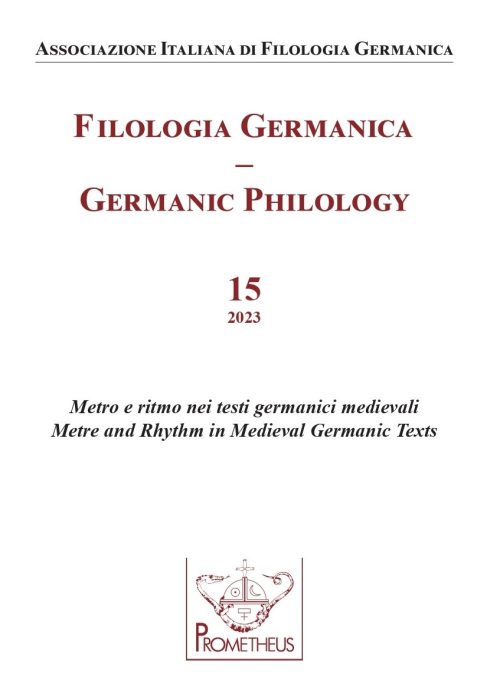Metrical and formal considerations in the textual criticism of the Vercelli Book
DOI:
https://doi.org/10.14672/fg.v15i.2424Parole chiave:
Vercelli Book, Krapp, Anglo-Saxon poetryAbstract
For nearly a century Anglo-Saxonists have relied upon the edition of the poetry in the Vercelli Book compiled by George Phillip Krapp in the series The Anglo-Saxon Poetic Records as the standard scholarly edition. The edition has many virtues, yet it evinces a number of regrettable peculiarities (see, e.g. the corrections offered by Daniel Donoghue in Style in Old English Poetry. The Test of the Auxiliary [1987], pp. 187-90). Not least among its oddities is a propensity to disregard metrical and formal considerations in determining when, and when not, to emend the poetic texts. In some instances, Krapp has altered the readings in the Vercelli Book to improve the sense or grammar in such a way as to render a verse unmetrical. An example is the verse Þǣr orcnāwe wearð (Andreas 770b), where the editor has supplied the word wearð, which does not appear in the manuscript, and has thus rendered an otherwise metrical verse unmetrical. A better editorial choice would be to alter manuscript þær to wæs, a word that it resembles in insular scripts. In other instances, Krapp has declined to apply any emendation to an unmetrical verse. An example is the verse
swā him sīo cwēn bēad (Elene 378b), though comparison with swā him sēo cwēn bebēad in the same poem (715b) suggests the obvious solution in the form of a normal verse of Sievers’ type B. This paper examines some instances in Krapp’s edition in which appropriate attention to metrical matters would improve the standard text of the poems in the Vercelli Book.
Pubblicato
Fascicolo
Sezione
Licenza

Questo lavoro è fornito con la licenza Creative Commons Attribuzione - Condividi allo stesso modo 4.0.
CC-BY-SA



